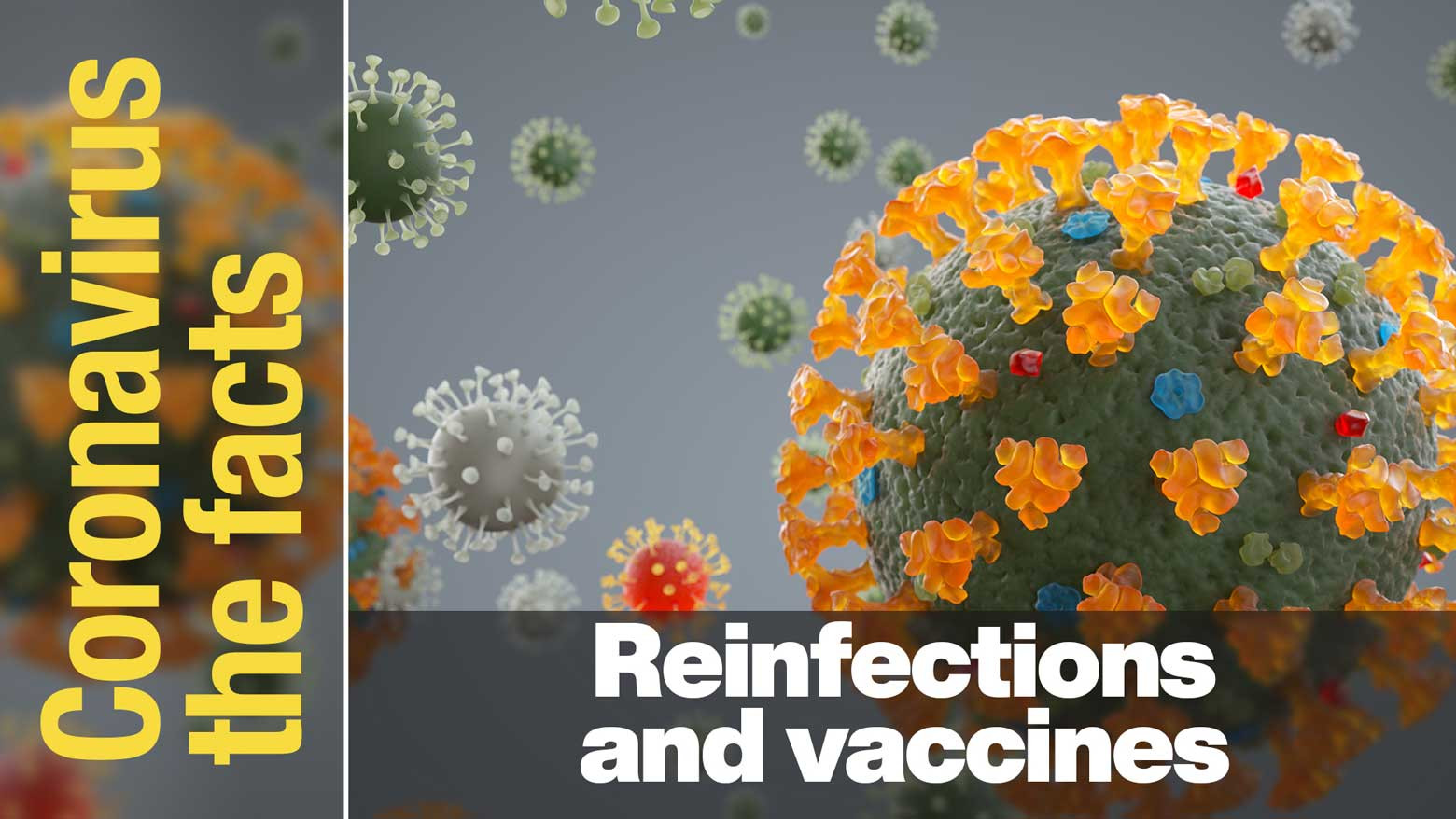This is part 55 of our coronavirus FAQ. Click here to read other installments: #Coronavirus the facts. Find the latest information and answers from experts on everything COVID-19.
Reinfection is possible even after vaccination
It's important to examine reinfections, as they can influence vaccine development. Vaccines aim to create antibodies in the body and prevent infections by administering a weakened state of the virus. However, there are questions concerning the effectiveness of vaccines if infected individuals who have produced antibodies are infected again.
Professor Nakayama Tetsuo, a virologist at Kitasato University, warns people not to jump to the conclusion that vaccines don't work just because people have been reinfected. Nakayama says while reinfections are possible, even after vaccines are developed and administered, there are merits to getting vaccinated.
Nakayama stresses that vaccinations do not just aim to infallibly prevent infections, but are designed to have other effects, including preventing patients from developing serious symptoms.
Promising vaccines: nasal spray vaccine
Many vaccines are designed to create antibodies in the bloodstream. But research is also underway to develop vaccines that help enhance the effectiveness of preventing infections.
Professor Katayama Kazuhiko, also of Kitasato University, is working on a new type of nasal spray vaccine. By applying the inoculation in the nose, he believes antibodies can be created in the upper respiratory tract and the virus can be blocked at the body's entrance. He says he intends to continue research over the next several years.
Professor Katayama says if an antibody called immunoglobin A, or IgA, is created in the mucous membranes of the nose, an infection could be halted before the virus multiplies in large numbers, so that the virus could be prevented from reaching the lungs.
Another promising vaccine
Professor Sasaki Hitoshi of Nagasaki University is working on developing a vaccine that induces antibody production at the mucous membrane in the lungs. When viruses stick to lung mucosa, they can cause pneumonia. The vaccine aims to prevent viral infection at the lung mucosa.
The vaccine is made of minute particles of artificially synthesized novel coronavirus RNA. The vaccine is inhaled by mouth so it directly reaches the mucous membrane of the lungs. Researchers believe the vaccine can be quite effective as it induces antibody production at the point where the viruses are at work.
How to handle the virus which has no signs of fading so far
Matsuura Yoshiharu, a professor at Osaka University and chairman of the Japanese Society for Virology, says we should act on the assumption that repeated infection is possible, as the general coronavirus causes the common cold. Professor Matsuura points out that a virus that does not cause reinfection is much rarer. He also noted that a virus cannot survive if it kills the host. The long history between mankind and viruses shows a pattern of repeated infections occurring and symptoms become lighter. The professor says we should not fear the virus excessively.
Measures against reinfection
Efforts are underway at all levels to make vaccines available. But experts warn that we should not let our guard down. They urge us to continue implementing basic measures, including thorough hand-washing, avoiding the so-called 3Cs --crowded places, close-contact settings and confined and enclosed spaces -- and maintaining social distancing.
This information is accurate as of Oct. 29, 2020.
